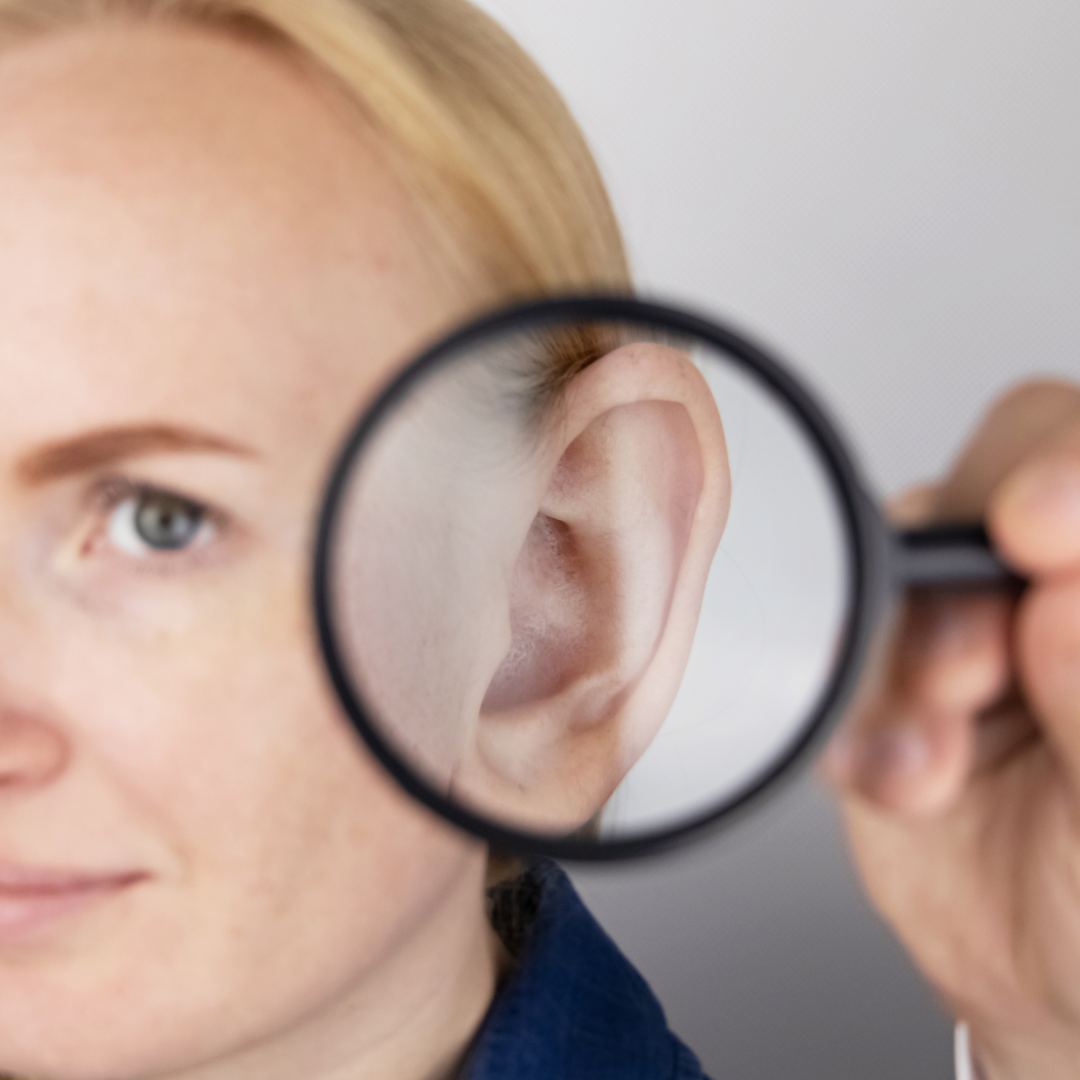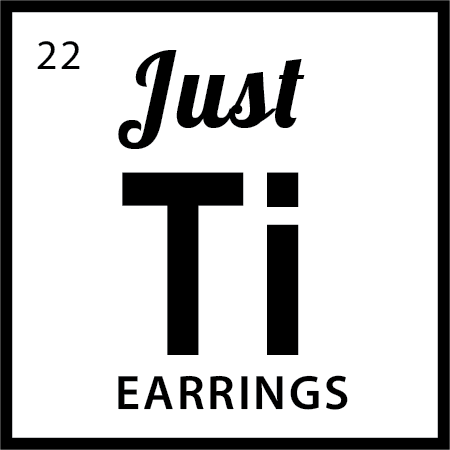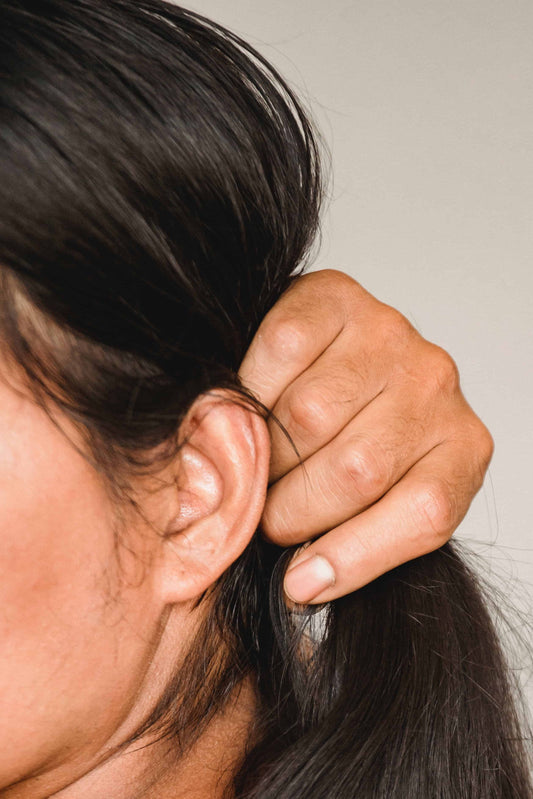
Why do my ears get so itchy when I wear earrings?
Share
If you’ve ever had itchy ears when you wore earrings, know that you're not alone. It's because our earlobes have very delicate skin. This skin is sensitive to many factors which can lead to discomfort and irritation. If we understand the common causes of why this happens and take proactive steps, then we can enjoy wearing our favorite earrings without any of the annoying itchiness.

Is my skin too dry?
Dry skin is one of the most common culprits when it comes to itchy earlobes, especially if we haven't worn earrings in a while. This is because inserting earrings when your skin is dry is more likely to cause rashes and irritation. This gets even worse if there are other irritants that touch the skin: the earrings themselves, or dirt and grime on your earlobe.
Apply a small amount of mineral oil or Vaseline with a cotton swab to the earlobe. This helps to moisturize the skin and protect it from any further irritation. In addition to keeping the skin hydrated, you can prevent itching and discomfort by practicing good ear hygiene and making sure that you have squeaky clean ears.
Is my soap too harsh?
While it's important to have clean ears, if we use a soap that is too harsh, it could strip the skin of the natural oils that protect us. This can lead to the dryness and irritation mentioned earlier. How do you determine if your soap is too harsh? Pay attention to how your skin feels after using the soap. Does your skin feel tight, dry or scratchy? If so, it may be too harsh for your ears as well.
Some with sensitive skin are especially prone to developing allergies, so check the soap label for any ingredients that may be irritating to your skin, such as sulfates, fragrances or preservatives. Of course, everyone has different skin, and everyone's skin produces different amounts of oils, so you’ll have to find what works best for you. Consider switching to a gentler alternative to see if that makes a difference. It's important to prioritize the health of your skin, not just for wearing earrings, but for overall ear happiness.
Any other irritants?
Another common reason for itchy ears when wearing earrings is an allergic reaction to the metals used in the earrings. The most common culprit is Nickel, which is a metal commonly used in all sorts of jewelry, but especially costume jewelry. It is a known allergen and a common trigger for eczema and other allergic reactions. It's estimated that up to 17% of women and 3% of men are allergic to nickel. When nickel touches your skin, it causes an allergic reaction also known as contact dermatitis. This reaction typically appears as an itchy red rash that could even be accompanied by swelling and blistering. Nickel is not the only culprit.
Sometimes other metals in earrings such as cobalt, chromium and palladium can also cause allergic reactions. Even different materials used for earring backs, like rubber or certain types of plastic can contain allergenic substances that cause irritation and itching. Tarnished earrings, especially those made of metals like silver, can be abrasive and irritating to the skin.
No matter what the earring is made of, if the earrings themselves are dirty or if too much sweat or bacteria has accumulated on the earring, this can also cause irritation. In summer seasons, excessive sweating can exacerbate eczema symptoms, even humidity or weather changes can cause irritation for some with sensitive skin.
Lastly, keep an eye on the chemicals in shampoos, hair dye or other hair products that come in contact with your ears when washing or styling your hair. By identifying and minimizing exposure to irritants, you can help prevent flare ups of eczema and manage your ear health more effectively.
Am I developing a skin allergy?
If you find that your ears begins to itch whenever you wear earrings, and they didn't before, it could be a sign that you're developing a skin allergy. Allergies occur when the immune system starts to overreact to certain substances, causing a response that includes those well-known symptoms of itching, redness and inflammation.
Often in the case of earring-related allergies, the culprit is the nickel, cobalt or other metals used in the earrings. It's important to note that this type of allergic reaction does not necessarily occur immediately when you start wearing a new pair of earrings, or even right after you first get your ears pierced. In fact, allergies to certain metals can develop over time as your immune system becomes sensitized to the metal.
So, if you've been wearing the same earrings for years without any issues, and then sudden itching or irritation appears on your earlobes, it could be an indication that your body has developed an allergy to certain metals. Make sure to buy earrings that are made from truly hypoallergenic materials. These have a much lower risk of triggering allergic reactions. Hypoallergenic materials are not necessarily 100% safe, though, so before wearing a new pair of earrings, perform a patch test by placing the earring against the skin on your arm or wrist. Try to leave it on for 24 to 48 hours and monitor the area for any signs of reaction. If there's no reaction, it's most likely that the earrings will be safe for you to wear.
If you have confirmed that you have a skin allergy, it's essential to avoid further exposure to allergens that trigger your symptoms, so make sure to identify the specific materials that cause your reaction. As a rule, if costume jewelry does not display its materials on the label, it is likely a bad choice for you, as it is likely to contain metals that you are allergic to. If you suspect that you're developing a skin allergy, consult with a dermatologist or allergy specialist. These can provide a proper diagnosis, help you in managing your allergies, and even suggest appropriate treatment options to alleviate your symptoms. Make sure that you communicate your symptoms, including the duration of the irritation, any accompanying pain or discharge, and any specific triggers that worsen the itching. Follow the professional's treatment plan, which could include doing allergy testing, taking prescription ear drops, topical ointments, or other medications to alleviate symptoms, such as antihistamines. Keep track of your symptoms and the effectiveness of the treatment plan. If you do not see improvement or your symptoms worsen, make sure to follow up with your healthcare provider for further evaluation.

Do I have contact dermatitis?
Contact dermatitis is just a different name for an allergy to certain metals contained in the earring. The symptoms are the same as the allergy including the itching, rash,
maybe even swelling or blistering. Eliminate possible causes one by one by monitoring your reaction to different earrings, double-checking ingredients in any hair or cleaning products that you use.
When your ears are dry, try applying a mild, fragrance-free moisturizer to help keep them healthy. If you've tried home remedies before, try adjusting which earrings you wear, and keep track of which materials may be bothering you. It is recommended to get professional help for persistent problems.
A Happy Solution
So where do titanium earrings fit into all of this? Hypoallergenic earrings are specifically designed to minimize the risk of allergic reactions in individuals with sensitive ears. Unfortunately, because there is no standard for what can be considered hypoallergenic, as set out by government institutions in Canada or the United States, any earring could possibly be called hypoallergenic. See more about hypoallergenic earrings here.
One metal that is very safe and that thousands of nickel allergy sufferers look for is titanium. Titanium is a popular choice for hypoallergenic earrings because it is a biocompatible metal. This means it doesn’t react to your body and this is the main reason it is used in orthopedic and dental implants. It is resistant to corrosion and does not contain any nickel. Titanium earrings are lightweight, durable and available in many different styles and designs. Other metals, such as surgical stainless steel or gold-plated metals can be helpful to some who have slight nickel allergies, but eventually, they can become problematic as they are not 100% free of nickel.
Pro Tip: You don’t have to get rid of your favourite drop earrings, grab a pack of titanium hooks. It only takes a few minutes and some pliers to keep your ears happy.

